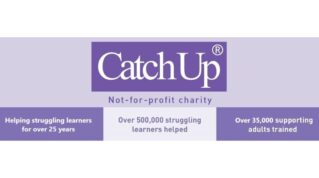1. Evidence based with proven results

This programme was developed with the leading international expert in this field Professor Dylan Wiliam with Siobhan Leahy and SSAT based on over fifteen years of research. Over 1,700 schools have engaged with the resource since first published, internationally as well as in the UK.
Students in the Embedding Formative Assessment schools made the equivalent of two additional months’ progress in their Attainment 8 GCSE score, using the standard EEF conversion from pupil scores to months progress. The additional progress made by children in the lowest third for prior attainment was greater than that made by children in the highest third.
Teachers have been positive about the Teacher Learning Communities. They felt that these improved their practice by allowing valuable dialogue between teachers and encouraged experimentation with formative assessment strategies.
2. Increase engagement and responsiveness in lessons
The formative assessment techniques ensure increased engagement from learners who then better support each other and take responsibility for their own learning. Teacher responsiveness is improved across your school by empowering your teachers to collect better evidence from learners and make better decisions in adapting lessons to meet the needs of learner’s moment by moment.
3. Support
A key part of the success of the EEF research trial is the dedicated support from an SSAT expert. We are with you every step of the way to mentor and support leaders and train your TLC leaders to maximise the effectiveness of the programme over the two years. EFA mentors work closely with school leaders and staff at critical moments of EFA implementation. To ensure success our mentors agree in advance a number of face to face and virtual consultations designed to maintain the momentum of embedding formative assessment in your school.
4. Teacher habit change
EFA provides teachers with choice, time, and flexibility to become even better by changing habits in everyday practice. EFA has clearly defined outcomes benefiting both students and teachers alike. Longer term impact of EFA has been seen in students actively seeking and acting on feedback and increased levels of student progress in all subjects equating up to a 25% increase in learning (Dylan Wiliam 2018).
5. A cultural change
Schools report how teachers value being given protected time to reflect, discuss and share their practice and expertise, which in turn develops their own thinking and supports the development of others. When asked to identify their greatest success, many schools highlight the change in the school’s culture, for both students and teachers.
Lostock High School – A case study
From transforming teaching and learning discussions to encouraging every student to participate in lessons, the impact of the SSAT’s Embedding Formative Assessment programme at Lostock High School has been far-reaching.
Teacher CPD, collaboration, and pupil participation in lessons have been transformed at Lostock High School after the 350-pupil school completed the two-year Embedding Formative Assessment (EFA) programme.
The school, which has 53% Pupil Premium and its own specialist autism unit, has made the programme its own with a particular focus on ensuring students understand precisely why formative assessment is crucial to their learning.
Teachers have adopted five core teaching techniques, with teachers using these and other approaches in their lessons as appropriate.
And with the school now having achieved EFA Ambassador School Status, key aspects of the work are here to stay, including the innovative Teacher Learner Communities, the engaging Top Tip Tuesdays, and the Everybody Expected to Participate initiative.
It improves teaching and learning across a school by supporting teachers to trial and refine formative assessment strategies. Teachers meet monthly in what are known as Teacher Learner Communities (TLCs) to discuss potential formative assessment techniques and lessons learned.
In between sessions, teachers conduct lesson observations and feedback to each other. Those on the programme feel that the TLCs improve practice by allowing “valuable dialogue” between teachers and “experimentation with formative assessment strategies”.
The Embedding Formative Assessment Programme
The programme at Lostock began in September 2020, at the height of the pandemic, with senior leaders planning two distinct phases of implementation – staff and students.
Year one focused on the staff. Teachers of all levels of experience worked together across departments, with aspiring middle leaders asked to lead the initiative.
The school allocated dedicated curriculum time on Mondays to allow teachers, working in pairs (known as buddies), to plan their strategies for using formative assessment in the classroom. The buddies also took part in peer observations to support this work.
Added to this, TLC workshops were introduced for 90 minutes once a month when teachers were able to discuss their approaches – and this is something that has proved so popular with staff that the school is to keep them even though the two-year EFA has now come to an end.
During this first year, teachers began introducing the strategies into their teaching with regular staff surveys gauging progress and feedback. Year two then focused on the students, helping them to understand the new approaches and why they support learning. It began with the student council and the Everybody Expected to Participate (EEP) ethos was born. Students were even asked to design a logo and posters to help promote EEP.
EEP was focused on the five most popular EFA techniques that were being employed by the teaching staff. The students were engaged in why these techniques were effective, with the key message being that they were “designed to help us help you get better in lessons”. These techniques were:
- Mini whiteboards (students respond quickly to questions asked during lessons).
- No-hands questions (when the teacher chooses a student to answer rather than asking for hands-up).
- What a Good One Looks Like (WAGOLL is an approach to modelling effective answers).
- Entry tickets (activities as students enter the classroom, often recapping prior learning).
- Exit tickets (activities as students finish the lesson, often providing evidence of learning and any gaps remaining).
Matt Johnson, assistant headteacher at Lostock High, explained: “Those five techniques are very much about ensuring that all students are required to participate in the lesson. There is no hiding place. It’s a consistent approach across the school.” Teachers also use “do now” activities and retrieval practice consistently in lessons, as well as “think-pair-share” activities, and comment-only marking.
Other elements of the programme included Top Tip Tuesdays, as well as half-termly newsletter updates, and CPD support for teachers on how to respond to the evidence they gathered about pupil learning and misconceptions, including how to reshape learning.
EFA buddy pairs are scheduled to present on the Top Tip Tuesdays to share their experiences. They run every Tuesday morning for 20 minutes when teachers can get feedback on strategies, teaching tips and so on. The EFA work is quality-assured via lesson observations, learning walks, and work scrutiny, with teachers expected simply to use some form of formative assessment in lessons.
David Nickerson, who has been a geography teacher for six years and is Lostock’s head of humanities, said the EFA programme has encouraged a lot of mastery and retrieval practice around curriculum content. He explained: “What we have is much deeper learning episodes based around showing really good core understanding. A lot of the strategies are really practical.” Mr Nickerson has tried and tested many different EFA techniques, including the five EEP approaches, and has made particular use of mini-whiteboards in order to “unpick misconceptions in real time” as well as comment-only marking, which has meant students are “no longer focused on the grade, but on how they can make progress”.
The school also has Reteach Weeks built into lesson and curriculum planning specifically designed to give teachers time to act on the evidence and tackle misconceptions. He added: “We are unpicking misconceptions all the time and that has been the real power – rather than letting a misconception fester and become powerful in the pupils’ heads. For us, it encourages us to be much more reflective about what is going on in our classroom. People are a lot braver and a lot more comfortable giving time to formative assessment and to try new things out without judgement.”
Mr Nickerson said the EFA work has been particularly effective with the school’s Pupil Premium cohort: “They are much more confident and orally they are much stronger. Strategies like this get them talking, confident to make mistakes, and that is an essential part of learning process.”
Ofsted also praised the EFA work after an inspection in September 2021. In confirming the school’s good rating, inspectors said: “Teachers use assessment effectively in lessons to check on pupils’ learning and identify any mistakes. They use this information to inform their teaching and provide pupils with additional help when needed. Teachers meet regularly to discuss their findings from assessments, identify pupils’ common misconceptions and adapt their curriculum plans accordingly.”
This year’s exam outcomes have shown a “massive improvement” across the board with an increase in pupil progress in almost every subject when compared to 2019, something Mr Johnson puts down in no small part to the impact of EFA. For 2022/23, the school is now continuing the work, with a specific focus on cognitive science CPD.
Mr Johnson said that the secret to making EFA a success was embedding it into school culture. He explained: “The EFA programme is excellent in terms of structure and the way it is set out in terms of the TLCs, workshops, and resources.
“My advice would then be to have additional activities around the workshops and that should be led by the senior leadership team. There must be dedicated time for the buddies to meet. Make this a part of school culture. We talk about this every day in school.
“For us it’s been a really great journey – generating that culture and those learning conversations. It’s a great thing to be part of.”
- Click here for more information on SSAT’s Embedding Formative Assessment Programme.
- Click here to read the EEF’s evaluation of SSAT’s Embedding Formative Assessment (2018).
We are delighted that due to funding from the Education Endowment Foundation (EEF), through the DfE’s Accelerator Fund, we are able to offer a limited number of schools with a secondary phase based in England funding for the fully supported Embedding Formative Assessment (EFA) programme. For more information click here.

















Your thoughts